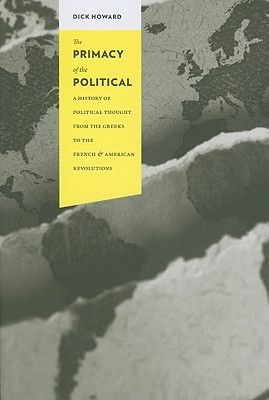
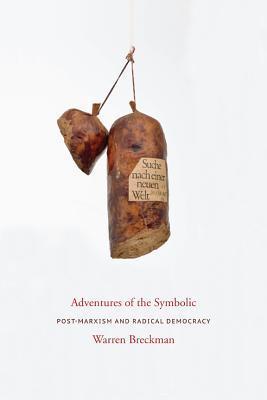
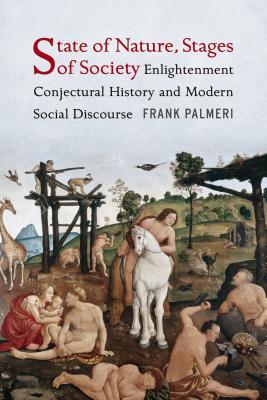
Columbia Studies in Political Thought / Political History
Series · 6 books · 1882-2017
Books in series

#4
The Primacy of the Political
A History of Political Thought from the Greeks to the French and American Revolutions
2010
The conflict between politics and antipolitics has replayed throughout Western history and philosophical thought. From the beginning, Plato's quest for absolute certainty led him to denounce democracy, an anti-political position challenged by Aristotle. In his wide-ranging narrative, Dick Howard puts this dilemma into fresh perspective, proving our contemporary political problems are not as unique as we think.
Howard begins with democracy in ancient Greece and the rise and fall of republican politics in Rome. In the wake of Rome's collapse, political thought searched for a new medium, and the conflict between politics and antipolitics reemerged through the contrasting theories of Saint Augustine and Saint Thomas. During the Renaissance and Reformation, the emergence of the modern individual again transformed the terrain of the political. Even so, politics vs. antipolitics dominated the period, frustrating even Machiavelli, who sought to reconceptualize the nature of political thought. Hobbes and Locke, theorists of the social contract, then reenacted the conflict, which Rousseau sought (in vain) to overcome. Adam Smith and the growth of modern economic liberalism, the radicalism of the French revolution, and the conservative reaction of Edmund Burke subsequently marked the triumph of antipolitics, while the American Revolution momentarily offered the potential for a renewal of politics. Taken together, these historical examples, viewed through the prism of philosophy, reveal the roots of today's political climate and the trajectory of battles yet to come.

#9
Adventures of the Symbolic
Post-Marxism and Radical Democracy
2013
Marxism's collapse in the twentieth century profoundly altered the style and substance of Western European radical thought. To build a more robust form of democratic theory and action, prominent theorists moved to reject revolution, abandon class for more fragmented models of social action, and elevate the political over the social. Acknowledging the constructedness of society and politics, they chose the "symbolic" as a concept powerful enough to reinvent leftist thought outside of a Marxist framework. Following Maurice Merleau-Ponty's "Adventures of the Dialectic," which reassessed philosophical Marxism at mid-century, Warren Breckman critically revisits these thrilling experiments in the aftermath of Marxism.
The postmarxist idea of the symbolic is dynamic and complex, uncannily echoing the early German Romantics, who first advanced a modern conception of symbolism and the symbolic. Hegel and Marx denounced the Romantics for their otherworldly and nebulous posture, yet postmarxist thinkers appreciated the rich potential of the ambiguities and paradoxes the Romantics first recognized. Mapping different ideas of the symbolic among contemporary French thinkers, Breckman traces a fascinating reflection of Romantic themes and resonances, and he explores in depth the effort to reconcile a radical and democratic political agenda with a politics that does not privilege materialist understandings of the social. Engaging with the work of Claude Levi-Strauss, Cornelius Castoriadis, Claude Lefort, Marcel Gauchet, Ernesto Laclau, Chantal Mouffe, and Slavoj Žižek, Breckman uniquely situates these important theorists within two hundred years of European thought and extends their profound relevance to today's political activism.

#11
State of Nature, Stages of Society
Enlightenment Conjectural History and Modern Social Discourse
2016
Frank Palmeri sees the conjectural histories of Rousseau, Hume, Herder, and other Enlightenment philosophers as a template for the development of the social sciences in the nineteenth and early twentieth centuries. Without documents or memorials, these thinkers, he argues, employed conjecture to formulate a naturalistic account of society's commercial and secular progression.
Palmeri finds evidence of speculative frameworks in the political economy of Malthus, Martineau, Mill, and Marx. He traces the influence of speculative thought in the development of anthropology and ethnography in the 1860s, the foundational sociology of Comte and Spencer, and the sociology of religion pioneered by Weber, Durkheim, and Freud. Conjectural histories reveal a surprising ambivalence toward progress, modernity, and secularization among leading thinkers of the time, an attitude that affected texts as varied as Darwin's Descent of Man, Nietzsche's Genealogy of Morality, and the novels of Walter Scott, George Eliot, and H.G. Wells. Establishing the critical value of conjectural thinking in the study of modern forms of knowledge, Palmeri concludes his investigation with its return in the work of Foucault and in recent histories on early religion, political organization, and material life.
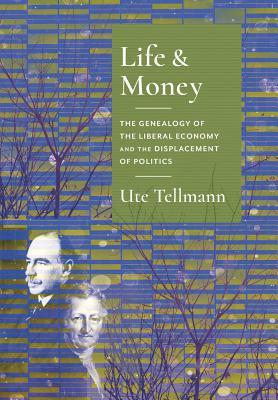
#12
Life and Money
The Genealogy of the Liberal Economy and the Displacement of Politics
2017
Life and Money uncovers the contentious history of the boundary between economy and politics in liberalism. Ute Tellmann traces the shifting ontologies for defining economic necessity. She argues that our understanding of the malleability of economic relations has been displaced by colonial hierarchies of civilization and the biopolitics of the nation. Bringing economics into conversation with political theory, cultural economy, postcolonial thought, and history, Tellmann gives a radically novel interpretation of scarcity and money in terms of materiality, temporality, and affect.
The book investigates the conceptual shifts regarding economic order during two moments of profound crisis in the history of liberalism. In the wake of the French Revolution, Thomas Robert Malthus’s notion of population linked liberalism to a sense of economic necessity that stands counter to political promises of equality. During the Great Depression, John Maynard Keynes’s writings on money proved crucial for the invention of macroeconomic theory and signaled the birth of the managed economy. Both periods, Tellmann shows, entail a displacement of the malleability of the economic. By tracing this conceptual history, Life and Money opens up liberalism, including our neoliberal present, to a new sense of economic and political possibility.
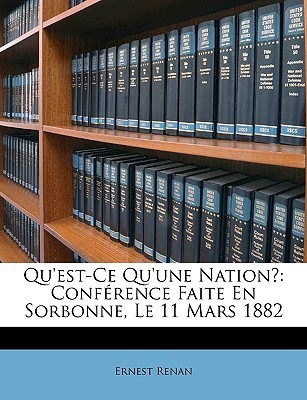
#14
Qu'est-ce qu'une nation?
1882
This is a reproduction of a book published before 1923. This book may have occasional imperfections such as missing or blurred pages, poor pictures, errant marks, etc. that were either part of the original artifact, or were introduced by the scanning process. We believe this work is culturally important, and despite the imperfections, have elected to bring it back into print as part of our continuing commitment to the preservation of printed works worldwide. We appreciate your understanding of the imperfections in the preservation process, and hope you enjoy this valuable book.
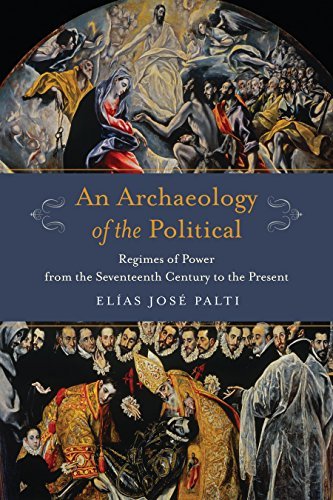
#15
An Archaeology of the Political
Regimes of Power from the Seventeenth Century to the Present
2017
In the past few decades, the focus of political-philosophical reflection has been reoriented to penetrate that dimension of reality known as "the political." Many of the key figures in contemporary political theory—Jacques Rancière, Alain Badiou, Reinhart Koselleck, Giorgio Agamben, Ernesto Laclau, and Slavoj Žižek, among others—have dedicated themselves to explaining and elaborating on the concept of the political, but in many cases they take the political for granted, as if it were a given, an eternal essence.
In An Archaeology of the Political, Elías José Palti argues that the realm of the political is not a natural, transhistorical entity. Instead, he claims that the horizon of the political arose in the context of a series of changes that affirmed the power of absolute monarchies in seventeenth-century Europe and was successively reconfigured from this period up to the present. Palti traces this series of redefinitions accompanying alterations in the regimes of power, creating a genealogy of the concept of the political. Perhaps most important, An Archaeology of the Political demonstrates that transposing ideas from one historical context into another invariably inflicts violence on the conceptual framework from which all political ideas take their meanings.
Authors
Warren Breckman
Author · 3 books
Warren Breckman is Associate Professor of History at the University of Pennsylvania and executive editor of the Journal of the History of Ideas.